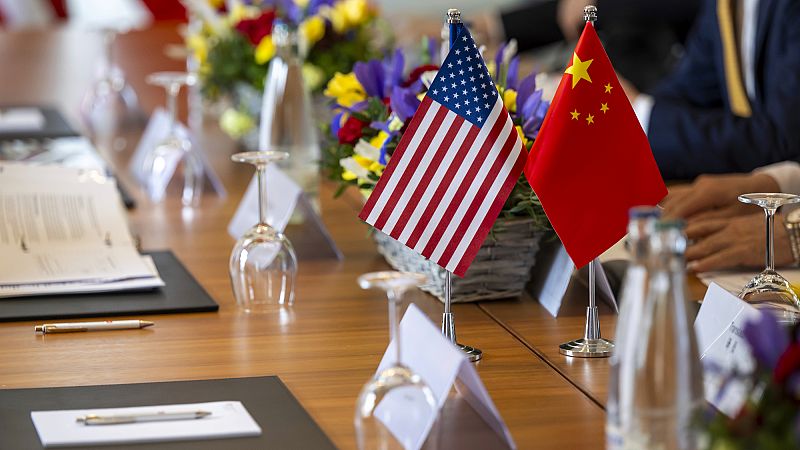
The US and China have now signed a trade agreement, said China's Ministry of Commerce on Friday, bringing the two economies further into alignment after the threat of a major trade war.
A released statement said that China would continue to approve export permits of controlled items, and that the US would "cancel a series of restrictive measures taken against China accordingly".
The statement comes after US President Donald Trump told reporters at the White House late on Thursday that the two nations had reached an agreement.
“We just signed with China yesterday,” he said, offering no further details.
Initial talks in Geneva in early May led both China and the US to postpone massive tariff hikes that were threatening to freeze much of the trade between the two countries. Later talks in London set a framework for negotiations, and the deal mentioned by Trump appeared to formalise that agreement.
What the framework could be all about
China announced earlier this week that it was speeding up export approvals of rare earths, materials used in high-tech products such as electric vehicles. Beijing's limits on exports of rare earths have been a key point of contention.
The Chinese Commerce Ministry said on Thursday that Beijing was accelerating a review of export license applications for rare earths and had approved "a certain number of compliant applications."
Export controls of the minerals apparently eclipsed tariffs in the latest round of trade negotiations between Beijing and Washington after China imposed permitting requirements on seven rare earth elements in April, threatening to disrupt production of cars, robots, wind turbines and other high-tech products in the US and around the world.
The agreement struck in May in Geneva called for both sides to scale back punitive tariff hikes imposed as Trump escalated his trade war and sharply raised import duties.
Some higher tariffs, such as those imposed by Washington related to the trade in fentanyl, as well as duties on aluminium and steel, remain in place.
The rapidly shifting policies are taking a toll on both of the world's two largest economies.
The US economy contracted at a 0.5% annual pace from January through March, partly because imports surged as companies and households rushed to buy foreign goods before Trump could impose tariffs on them.
In China, factory profits sank more than 9% from a year earlier in May, with automakers suffering a large share of that drop. They fell more than 1% year-on-year in January to May.
Trump and other US officials have indicated they expect to reach trade deals with many other countries, including India.
"We're going to have deal after deal after deal," Lutnick said.







